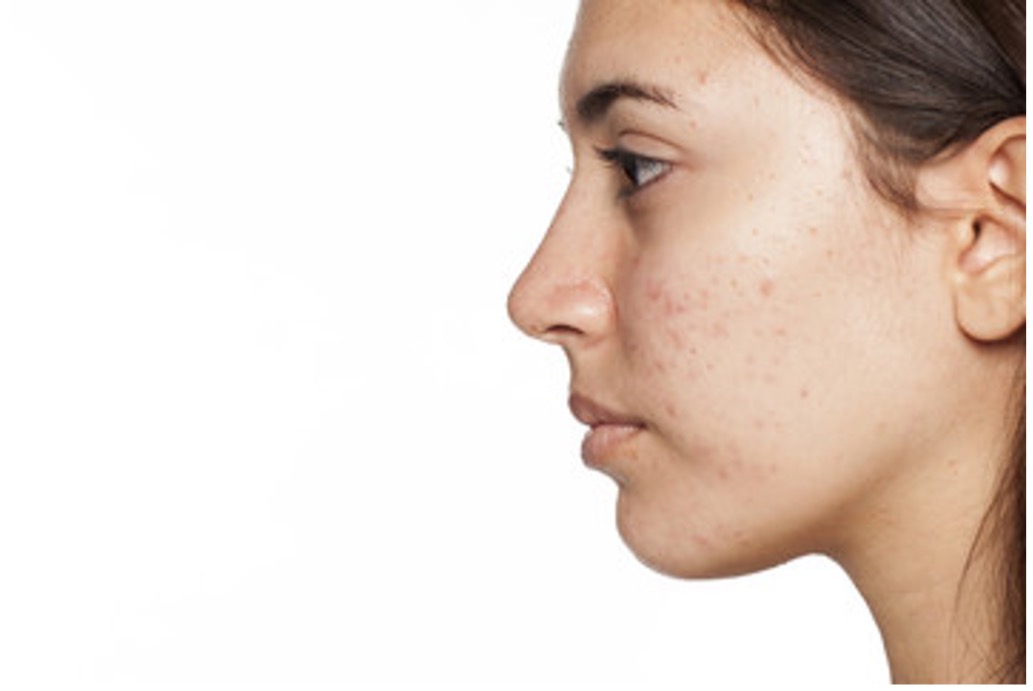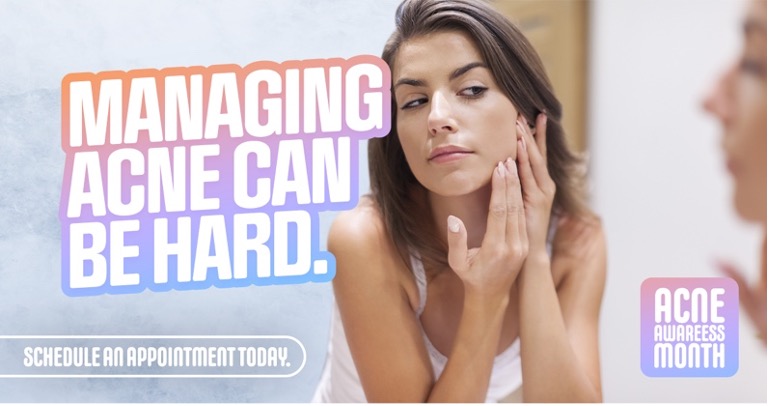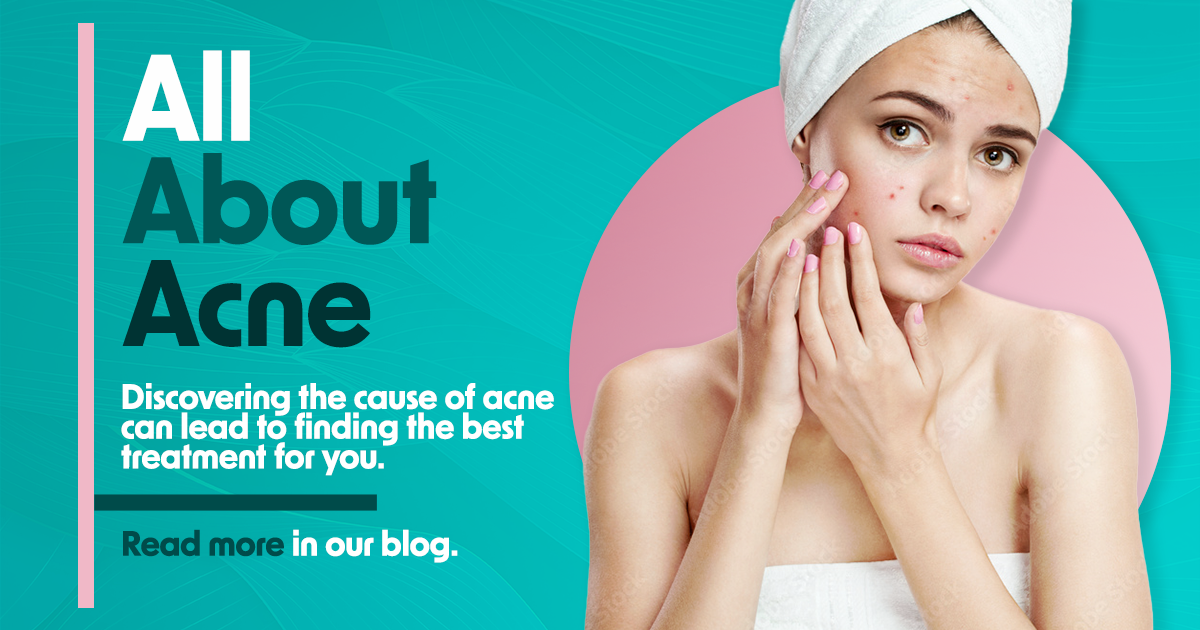Acne is a tale as old as time; join us as we dive deeper into this persistent and often low self-esteem-inducing issue. Learn all you need to know about acne as we break down what it is and available treatment options in our latest blog below!
Understanding What Acne Is
People of all ages can face acne, which can be intimidating and overwhelming. We’ve all lived it, but what exactly is it? A combination of factors like excess oil production and hormones result in acne. To explain further, acne happens when the pores on our skin get clogged with oil, dirt, and dead skin cells. As these chemicals mix, they create an environment that encourages bacteria growth resulting in inflammation and often unsightly pimples. Generally, the areas affected are the face, neck, chest, shoulders, and back. However, much like the people affected, acne comes in several different forms, primarily the following four:
1) Cystic acne – is characterized by deep inflamed blemishes that appear as reddish bumps due to the overproduction of oil or bacteria clogging the pores. Cystic acne can leave permanent damage to the skin, such as scarring.
2) Fungal acne – is caused by the buildup of fungus and yeast on the skin’s surface and hair, usually appearing as a small white or yellow-centered pimple.
3) Hormonal acne – when hormone imbalance increases oil production, which leads to breakouts.
4) Nodular acne – large bumps or swellings beneath the surface that are tender and more difficult to treat without professional help.
We advise talking to your dermatologist to determine the best course of action for you.

What Causes Acne to Occur?
Acne doesn’t discriminate; it affects nearly everyone to some degree throughout their life. Fortunately, we continue collecting more knowledge about what can trigger outbreaks. Some causes of acne include dietary choices, hormone fluctuation, and nicotine use, but why?
If a person’s diet is high in processed foods and sugars, this can increase sebum production, which blocks pores while agitating the skin. Hormones also play a big part in the development of acne; during stress or hormonal changes, such as during pregnancy or puberty, our hormone levels fluctuate, increasing the balance required to keep our skin healthy. When hormones like testosterone and progesterone become more active and the skin’s sebum production increases. Our pores become clogged, making them more prone to bacteria buildup, which can result in painful pimples. Lastly, when ingested, our body treats nicotine as a toxin. This can cause stress and elevate the hormones responsible for causing acne. Nicotine has been linked to worsening the symptoms of acne by decreasing the effectiveness of topical treatments and inhibiting immune response.
Traveling the Road of Treatment
Often, the best action plan for treating acne is to combine different therapies based on individual cases, such as topical medications and oral antibiotics. At Alamo Heights Dermatology, we know how uncomfortable acne can be. Our team of professional dermatologists is dedicated to helping you look and feel your best! We offer a variety of tailored treatments to help you target acne. From benzoyl peroxide, oral antibiotics, and topical treatments to hormone therapy and tretinoin, our team has the experience to assess the best options suited for you. For those extra stubborn pimples, we also offer extraction services. Different plans will depend on the severity and type of acne, but consistent care is the best way to get long-lasting results. You can trust that with us, you’re in good hands!

Leave the pimple popping to the experts! At Alamo Heights Dermatology, we want you to feel comfortable in your skin. Are you stressed about persistent acne? Visit our website or contact us at (210) 255-8447 today to learn more about our services!
Resources:
https://www.ncbi.nlm.nih.gov/pmc/articles/PMC2835905/


